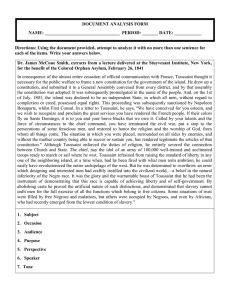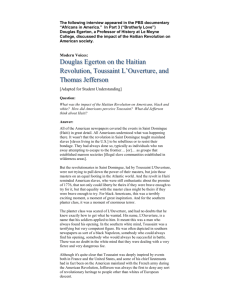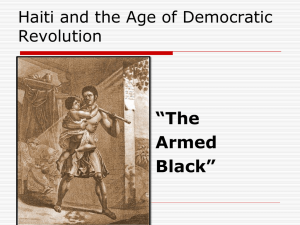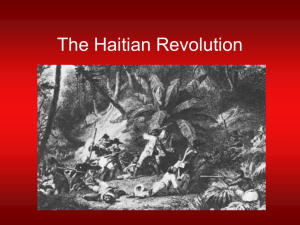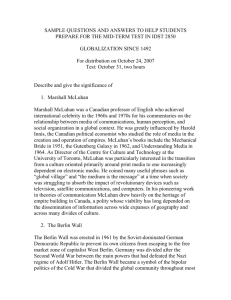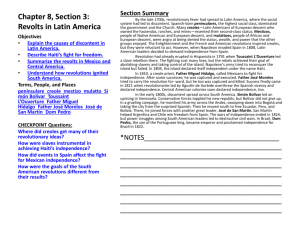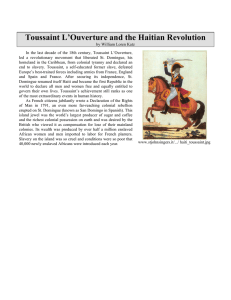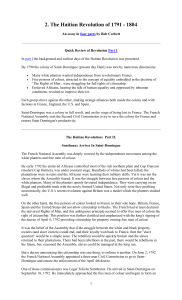Activity 7. Memoir of General Toussaint L'Ouverture (1803) Background:
advertisement
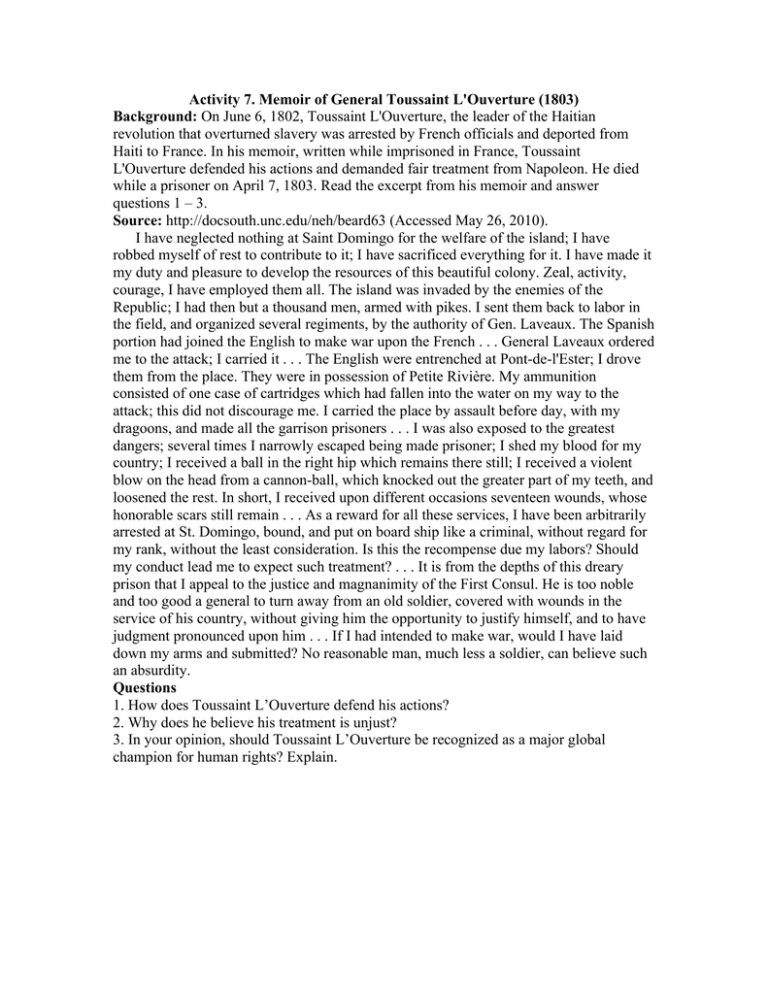
Activity 7. Memoir of General Toussaint L'Ouverture (1803) Background: On June 6, 1802, Toussaint L'Ouverture, the leader of the Haitian revolution that overturned slavery was arrested by French officials and deported from Haiti to France. In his memoir, written while imprisoned in France, Toussaint L'Ouverture defended his actions and demanded fair treatment from Napoleon. He died while a prisoner on April 7, 1803. Read the excerpt from his memoir and answer questions 1 – 3. Source: http://docsouth.unc.edu/neh/beard63 (Accessed May 26, 2010). I have neglected nothing at Saint Domingo for the welfare of the island; I have robbed myself of rest to contribute to it; I have sacrificed everything for it. I have made it my duty and pleasure to develop the resources of this beautiful colony. Zeal, activity, courage, I have employed them all. The island was invaded by the enemies of the Republic; I had then but a thousand men, armed with pikes. I sent them back to labor in the field, and organized several regiments, by the authority of Gen. Laveaux. The Spanish portion had joined the English to make war upon the French . . . General Laveaux ordered me to the attack; I carried it . . . The English were entrenched at Pont-de-l'Ester; I drove them from the place. They were in possession of Petite Rivière. My ammunition consisted of one case of cartridges which had fallen into the water on my way to the attack; this did not discourage me. I carried the place by assault before day, with my dragoons, and made all the garrison prisoners . . . I was also exposed to the greatest dangers; several times I narrowly escaped being made prisoner; I shed my blood for my country; I received a ball in the right hip which remains there still; I received a violent blow on the head from a cannon-ball, which knocked out the greater part of my teeth, and loosened the rest. In short, I received upon different occasions seventeen wounds, whose honorable scars still remain . . . As a reward for all these services, I have been arbitrarily arrested at St. Domingo, bound, and put on board ship like a criminal, without regard for my rank, without the least consideration. Is this the recompense due my labors? Should my conduct lead me to expect such treatment? . . . It is from the depths of this dreary prison that I appeal to the justice and magnanimity of the First Consul. He is too noble and too good a general to turn away from an old soldier, covered with wounds in the service of his country, without giving him the opportunity to justify himself, and to have judgment pronounced upon him . . . If I had intended to make war, would I have laid down my arms and submitted? No reasonable man, much less a soldier, can believe such an absurdity. Questions 1. How does Toussaint L’Ouverture defend his actions? 2. Why does he believe his treatment is unjust? 3. In your opinion, should Toussaint L’Ouverture be recognized as a major global champion for human rights? Explain.

